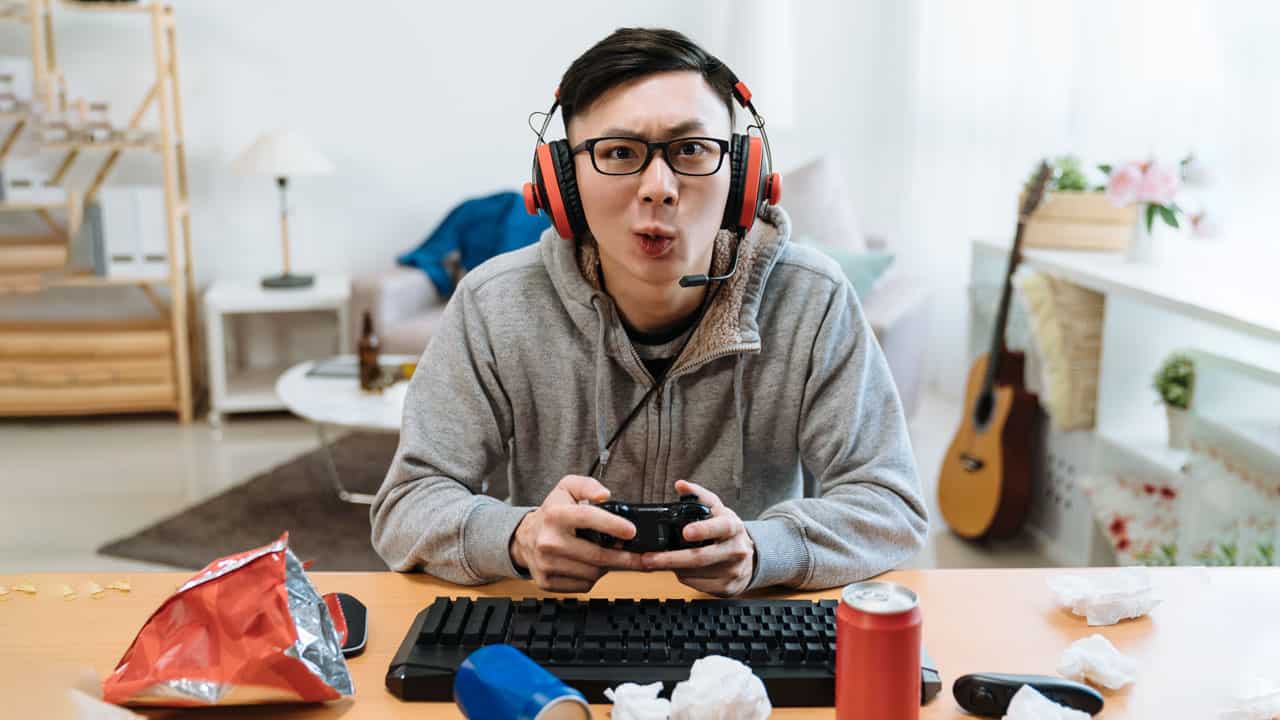
Failure to Launch Syndrome: Causes And How to Fix It
‘Failure to launch’ is the name of a popular 2006 movie, featuring a 30-something man who still lives with his parents and refuses to take on adult responsibilities. ‘Failure to launch syndrome’ is a term inspired by the movie, which describes a young person’s inability to go through the usual rites of passage associated with adulthood.
In this article, we explore various factors that can prevent someone from becoming independent, including gaming and technology addiction. We also look at whether failure to launch treatment is available, and what parents can do to help a loved one make their own way in the world.
What is failure to launch syndrome?
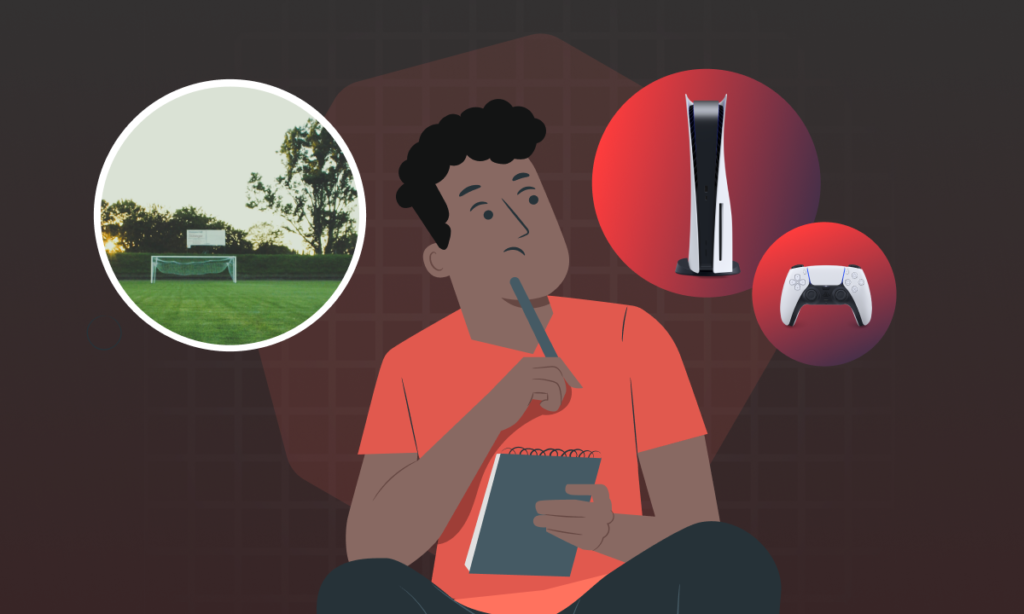
Failure to launch syndrome (sometimes called Peter Pan syndrome) is usually defined as a young person’s inability to take on the responsibilities and independence associated with adulthood. Typically, they live in the family home and are highly dependent on their parents. They’re unlikely to be in school or employment, contribute anything financially, help with household chores, or be able to form significant relationships.
Failure to launch generally occurs in young adults between 18 and 29 years old. That said, people of any age can lack the maturity needed to cope with the challenges of adult life. This is why we’re sometimes asked about getting help for failure to launch syndrome at 30 and failure to launch syndrome at 40, as well as failure to launch syndrome at 20,
So, is failure to launch a diagnosis? Despite sounding like one, failure to launch syndrome is not a formally recognized condition in the Diagnostic and Statistical Manual of Mental Disorders (DSM-5). But although it’s not a classified disorder, many people who fail to launch are battling with the following:
- Low motivation
- Lack of direction
- No sense of purpose
- Inability to focus
- Feeling ‘stuck’
- Low self-esteem
- Procrastination
- Difficulty coping with stress
- Fear of responsibility
- Feelings of isolation, helplessness, and shame
- Poor social skills and avoidance of social situations.
What is the failure to launch generation?
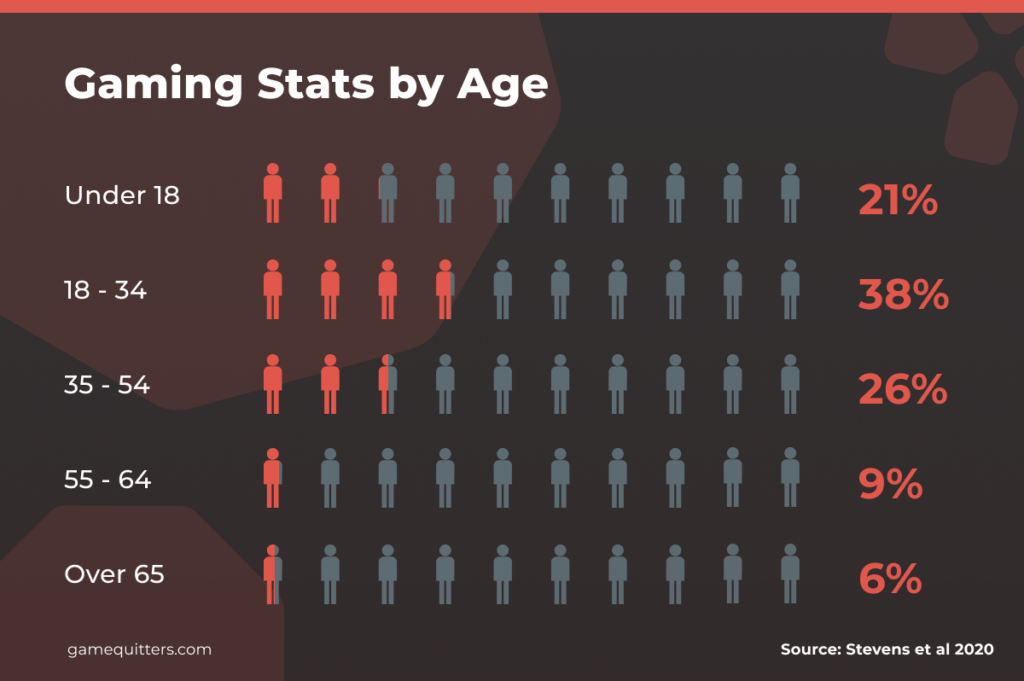
The COVID-19 pandemic meant that millions of young adults had to stall their transition to adulthood and remain at, or return to, the family home. For a while, they were unable to live independently – even if they wanted to – because of the lockdown restrictions imposed in many countries worldwide. It would have been all too easy to stay afterwards and become the failure to launch generation, but many young people have since returned to college; got a new job, if they were laid off during the pandemic; or moved in with a partner or friends. But what about those who haven’t progressed?
Failure to launch statistics
If someone you care about feels ‘stuck’ and unable to progress to an independent life, they’re not alone. According to the Pew Research Center, young adults in the US are reaching key life milestones later than previous generations. So, what is failure to launch for a 20-year-old, for example?
The following statistics compare today’s 21-years-olds with young people from 40 years ago:
- 39% have a full-time job, compared with 64% in 1980
- 49% still live with their parents, compared to 38% in 1980
- 25% are financially independent of their parents, compared with 42% in 1980
- 6% have been married or had child, compared with 32% and 18% respectively in 1980.
One of the reasons for the above statistics is the increase in college enrollment over the last four decades: 48% of 21-year-olds in the US go to college today, compared to 31% in 1980.
However, by the age of 25 young women today have either caught up with or overtaken their female predecessors: 61% are in full-time employment now (the same as in 1980) and 56% are financially independent (compared with 50% in 1980). However, 25-year-old men today still lag behind their predecessors in achieving these key milestones.
Common signs of failure to launch syndrome
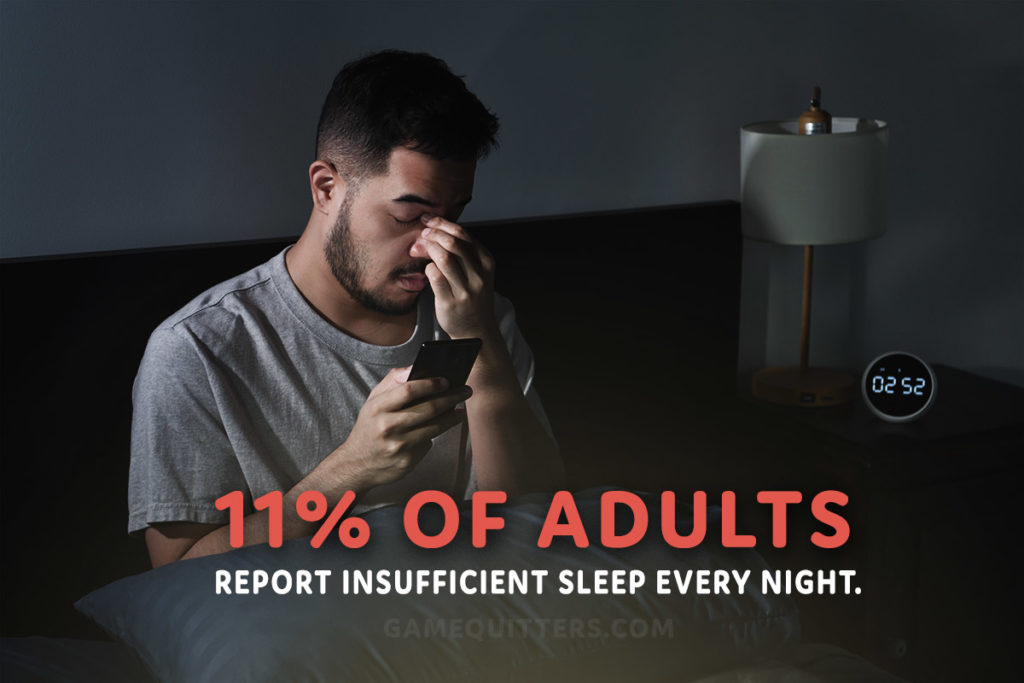
Are you concerned that a friend or family member may be struggling with the transition into adulthood? Take our quiz to see if they have common failure to launch symptoms.
Failure to launch quiz
- Have they dropped out of school or college, or has their academic performance nosedived?
- Do they have little or no interest in taking on responsibilities and becoming independent?
- Have they moved back home after trying and failing to live on their own, or have they never left home?
- Do they have no plans or long-term goals?
- Do they struggle to hold down a job or are they only minimally employed?
- Do they contribute little financially to the household?
- Do they abuse substances, particularly illegal drugs, alcohol or prescription medication?
- Do they have mental health issues such as depression, anxiety/social anxiety or behavioral disorders such as ADHD?
- Have they failed to develop the life skills needed for adulthood e.g., budgeting, time management, cooking, and cleaning etc?
- Do they lack the emotional intelligence to thrive, such as problem-solving, critical thinking, decision-making, relationship building, and resilience?
What causes failure to launch syndrome?

There is no single cause of failure to launch syndrome, but the following can be contributory factors:
Societal issues
21st century life is a minefield of economic and environmental problems for young people – from the cost-of-living crisis, student debt, and lack of affordable housing to the threat of global conflict and climate change.
It’s no wonder that many young adults feel trapped in a state of negativity and unable to make their own way into a world that seems threatening and frightening.
Overprotective parenting
Parenting style can be a factor in a young person feeling practically and emotionally ill-prepared to fend for themselves. Overprotective parenting (also known as helicopter parenting) can be done with the best interest of the child in mind but can lead to a lack of confidence and self-autonomy.
Often unintentionally, parents choose to make their children’s lives easy, for example, doing all the household chores, or removing any obstacle they may face outside the home. However, age-appropriate challenges at different stages of development are what helps young people develop essential skills like problem-solving, resilience, and decision-making.
Challenging life events
Certain major life events, such as the death of a close family member, serious illness or injury, relationship break up, or other adverse circumstances can make it difficult for a young person to take on adult responsibilities and function independently.
Formative experiences
Experiencing traumatic events in childhood can have a long-lasting effect on a young person’s emotional stability and impact their ability to cope with the challenges of adulthood.
These adverse formative experiences may range from domestic violence, abuse, or neglect to living with a family member who has substance use or mental health issues.
Mental health disorders
According to the World Health Organization (WHO), one in seven 10-19-year-olds suffer from mental health problems. The most prevalent conditions are depression, anxiety, and behavioral disorders which can all be underlying reasons for a failure to launch. ADHD (attention-deficit hyperactivity disorder) is a chronic and debilitating behavioral disorder that affects an estimated 8.4% of children and 2.5% of adults.
Narcissism is a personality disorder that can exacerbate failure to launch. Narcissism often presents as someone having an exaggerated sense of entitlement, being self-centered, and showing a lack of empathy for others. In failure to launch, this can manifest as an overreliance on their parents for practical and emotional support.
In many countries globally, mental health resources are stretched or inadequate, so teens are not receiving the specialist support they need. As a result, untreated mental health issues can often persist into adulthood and cause poor self-esteem, and negative thoughts and behaviors. This can affect daily functioning and leave young people unable to cope with the pressures of living independently.
Substance abuse
Abusing substances, particularly alcohol, illegal drugs, or prescribed medication, is a major factor in failure to launch syndrome. This is because young people suffering from an addiction are more likely to experience financial struggles, cognitive impairment, emotional issues and physical health problems.
Trying to satisfy the addiction can take over their lives so that other important aspects such as school or college, work commitments, fitness and health, and social activities take a back seat. This chaotic lifestyle can cause significant challenges when trying to transition to adulthood.
Technology addiction
While technology has many benefits, it can also have negative consequences. Many young people feel they need to be constantly connected to the internet and social media platforms due to FOMO (fear of missing out).
The online world can become their real world as they increasingly withdraw from school, work, family, and friends.
As a result, they can miss out on important milestones on the road to independence such as academic and personal achievements. It can also stunt their social development as they fail to develop meaningful relationships that establish their place in society. Overreliance on technology can rob young people of these real-life experiences and is a constant distraction from making their own way in the world.
Video game addiction
Video game addiction is a particularly destructive type of technology addiction. What starts as a fun hobby can gradually take over a young person’s life until it reaches the point where it’s their main priority. It’s where they spend all their time. It’s where they feel a sense of competence. And it’s where they find all their friendships.
Consequently, playing video games becomes more important than their education, career prospects, relationships, hobbies, health, and hygiene. But their passion for gaming is no longer a passion, it’s something that’s spiraling out of control.
Those suffering from gaming addiction and any associated mental health issues lack the skills, time, and energy to do anything apart from reach the next level or mission in the game. Their entire world is virtual, so it is exceptionally difficult to strike out in the real world on their own.
Is someone you care about showing signs of video game addiction? If so, suggest they take our short video game addiction test.
Brad’s story
At Game Quitters, we often hear from loved ones whose children’s lives are consumed by gaming on our parent support forum. Brad (not his real name) was suffering from failure to launch syndrome because of video game addiction. His mother contacted us in desperation:
“My son is 26 years old. Currently he’s depressed, suffers from low self-esteem, and has suicidal thoughts. He wakes up at 2pm, drinks an energy drink, and smokes a joint. Then he hops on Discord to see which gamer friends are online to play League of Legends. In between games he smokes more weed to maintain a high throughout the whole day.
He plays for 10-15 hours a day and has no motivation for anything else. He has no plans to start working or go back to school to improve his skills. All I want for him is to get a job, becoming self-sufficient and survive in the real world.”
Brad recognized that he needed professional help to regain control, and redirect his focus toward breaking free from addiction and becoming independent. So, he agreed to join the Game Quitters specialist coaching program for people gaming problematically. Since we started working together, he’s playing less games, smoking less weed, has a weekend job, and goes to a boxing gym four times a week. But most of all, he’s starting to see a vision for his life outside the relentless gaming cycle and make plans for the future.
How to help someone to launch
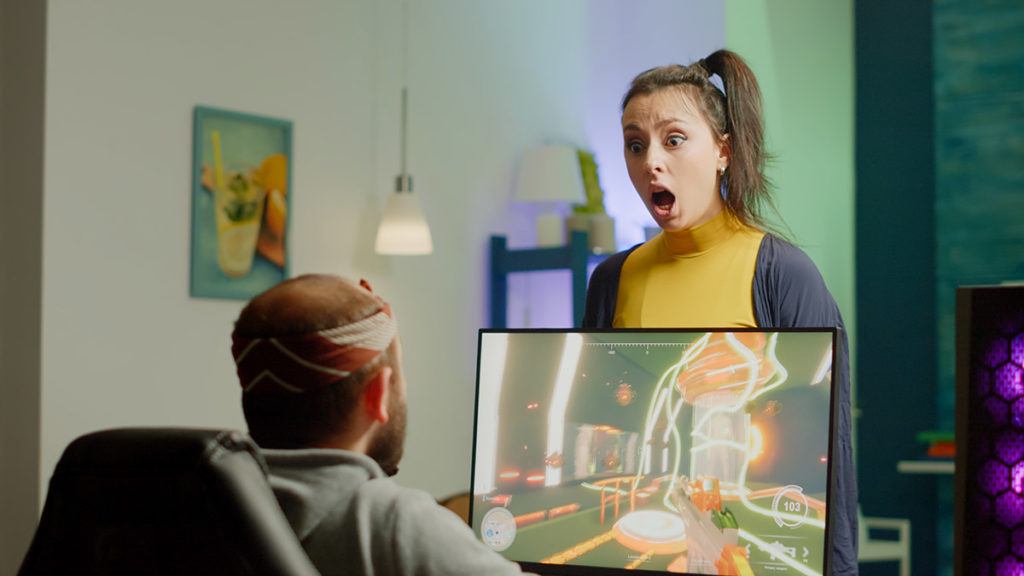
If you’re living with a young adult who’s struggling to live independently, you may be wondering how to treat failure to launch syndrome. We sometimes get asked: ‘How do you fix failure to launch syndrome?’ or ‘How do you help an adult with failure to launch?’ In the same way that there’s no single cause of failure to launch syndrome, there’s not one approach for helping young adults overcome it. Instead, there are several things that parents and carers can do (and not do) to help them make their own way in the world.
Do
- Agree clear boundaries and expectations
- Provide empathetic and loving support
- Explain that becoming independent is a gradual process
- Encourage lifestyle changes such as regular sleep, healthy eating, and physical activity
- Help them identify their strengths and praise small wins to build self confidence
- Help them to get professional support for any substance abuse, mental health, or addiction issues
- Teach them some practical skills such as money management, cooking, and cleaning
- Set a date when you’re going to start charging for rent, food, utilities, etc.
- Offer them opportunities to fail and learn from their mistakes
- Make time for yourself and seek support if you need it.
Don’t
- Get angry or frustrated – it will just make the situation worse
- Cut off support with little or no warning
- Set unrealistic goals
- Be overprotective by making decisions or taking action on their behalf
- Let them shirk household chores
- Try to solve their problems
- Pay their day-to-day expenses – food, clothing, socializing, etc.
- Dictate what they should do with their life.
Another way to help is to enroll on a failure to launch program such as the Game Quitters coaching program for families and young adults. Read on to find out more.
Need help?
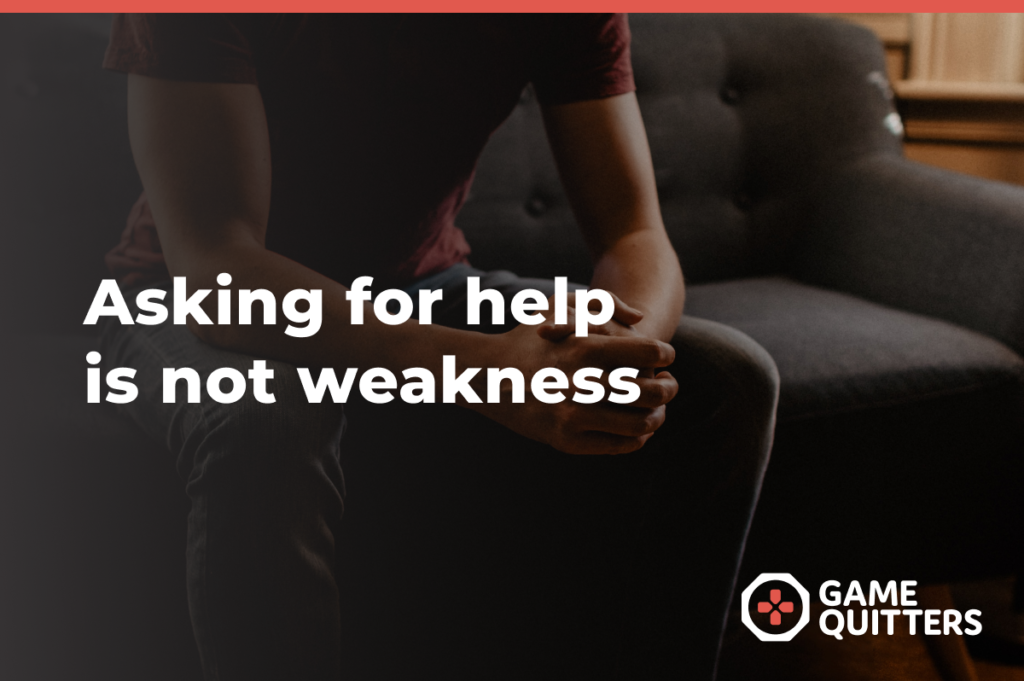
If you’ve tried the above approaches but someone you care about is still failing to launch, and you think it’s because of gaming or technology addiction, we can help. Or maybe you’ve been asking yourself, ‘Why am I failing to launch?’ because you’re finding it difficult to stop gaming and take the necessary steps toward independence.
At Game Quitters, our 12-week coaching program focuses on overcoming obstacles to improve motivation and find a sense of purpose.
For more information, get in touch to book a Gameplan Strategy Call. During this confidential conversation, we’ll see if they’re a good fit for the program – we specialize in helping gamers in denial. Limited spaces are available so that we can provide personalized coaching.
